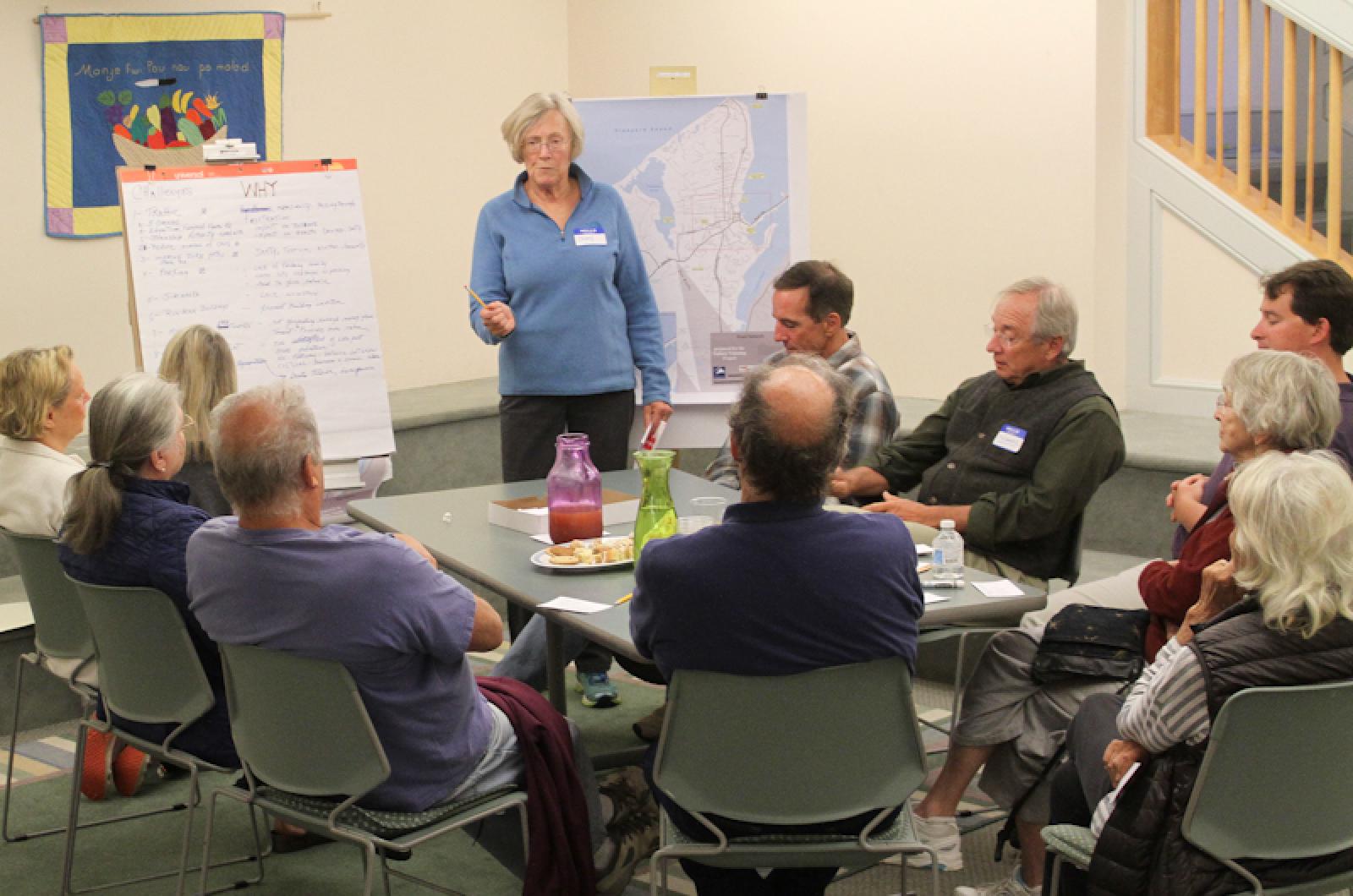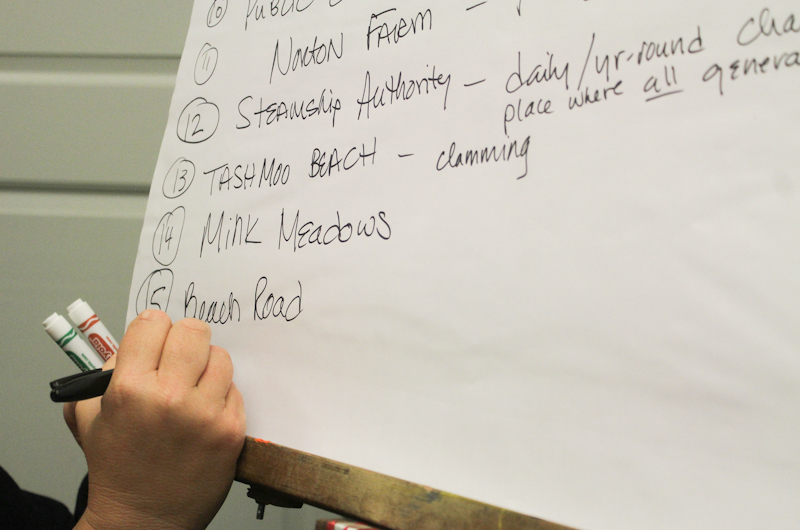Last Friday morning, 53 people gathered at the Vineyard Haven Public Library with a mission: identify what makes Tisbury special, and how it could be better.
The attendees broke into five groups, each led by volunteer facilitators armed with a large street map of Tisbury, a tall notepad easel, index cards, and sheets of round stickers. Last Friday was the second of three workshops held during the week; the groups brainstormed for two hours.
The workshops were part of the Tisbury vision planning process, an initiative sparked by town planning board member Cheryl Doble in the spring. Mrs. Doble has worked on visioning processes in other towns, and said on Monday that the process is a way to provide clarity for future town improvements.
“Our first goal is to understand Tisbury’s values, so that as we start making decisions, we have the understanding to make those decisions,” Mrs. Doble said. “Then, what are the steps we can take to start moving us towards that vision?”
“To me, the thing that’s special about this process is you do come to a values [understanding],” she continued. “You come forward with something you can begin to implement.”
On Friday, the groups first discussed Tisbury’s so-called treasures: places or ideas that the town should work to preserve. Facilitators worked to help their groups point out not just one what they thought was special, but why. In response to one suggestion of “green space,” facilitator Lillian Robinson encouraged specificity. The group landed on Veterans Park.The Tisbury School was a frequently-named treasure, along with the West Chop Light, Lake Tashmoo, and Main street. Some wrote down Camp Jabberwocky, others listed the Katharine Cornell Theater.
Others said they liked Tisbury’s authenticity, and what attendee Harriet Barrow described as the “twelve-month character of the town.”
At another table, the group discussed the importance of having a working harbor.
“So many historical places are recreations, but [Tisbury] is real,” said Bill Bruno.
“We’re so lucky to have a wooden boat harbor,” Nevin Sayre said. “To me [Gannon and Benjamin] is probably one of our biggest treasures.”
Green stickers were placed on the Tisbury map to indicate the town treasures, clustering around the downtown area with a handful sprinkled on the outer town boundaries. When it came to addressing the town’s challenges, however, the red stickers on many maps were entirely downtown.
Parking, zoning, waterfront access, the Stop & Shop building (“It doesn’t look good when you come off the boat,” one person said), affordable and elderly housing, and Five Corners made one group’s list, along with more far-reaching concerns such as sea level rise, coastal erosion, and a potable aquifer.
People also discussed opportunities available to the town.
“We have no Parks department,” Holly Stephenson said, noting that such a division could help maintain both beaches and green space.
Others suggested better coordination between existing town departments, while others said Tisbury should make the most of its recent state cultural district designation. The Vineyard Haven Harbor Cultural District was created in June.
A total of just over 140 people attended the sessions, with Tuesday evening being the busiest.
“People were really engaged for the full time that we were there,” Mrs. Doble said. She said people worked to build on ideas others had, making the most of the brainstorming.
But what stood out to Mrs. Doble the most after the workshop session concluded was the quality of the responses.
“We got a lot, a lot, a lot of rich information,” she said. “We’re trying to collect it all and put it in a format that we can use and see what this means...people were really constructive, trying to build on ideas that others brought up.”
Each participant made individual lists of treasures, challenges, and opportunites, which were meant to be written in priority order. The ordering will allow organizers to better figure out the “big ideas people think we need to tackle,” Mrs. Doble said.
The next series of workshops, to be held the first weeks of November, will be more focused, taking the concepts from last week’s planning and honing in on details and strategies.
“Hopefully by January we can have an implementation plan,” Mrs. Doble said.





Comments
Comment policy »